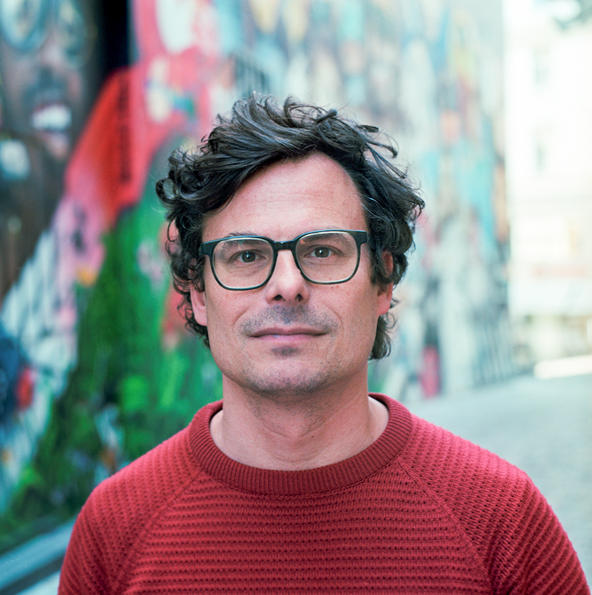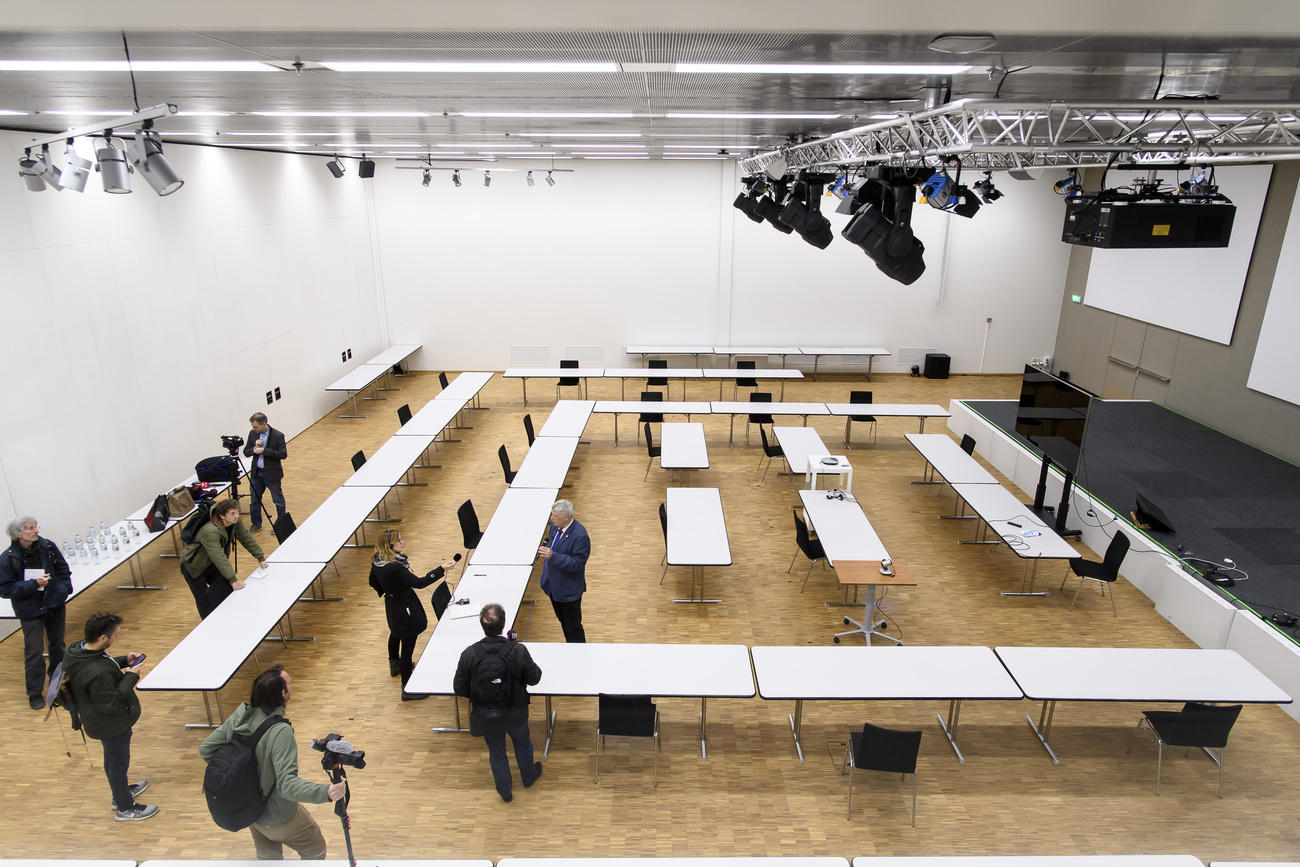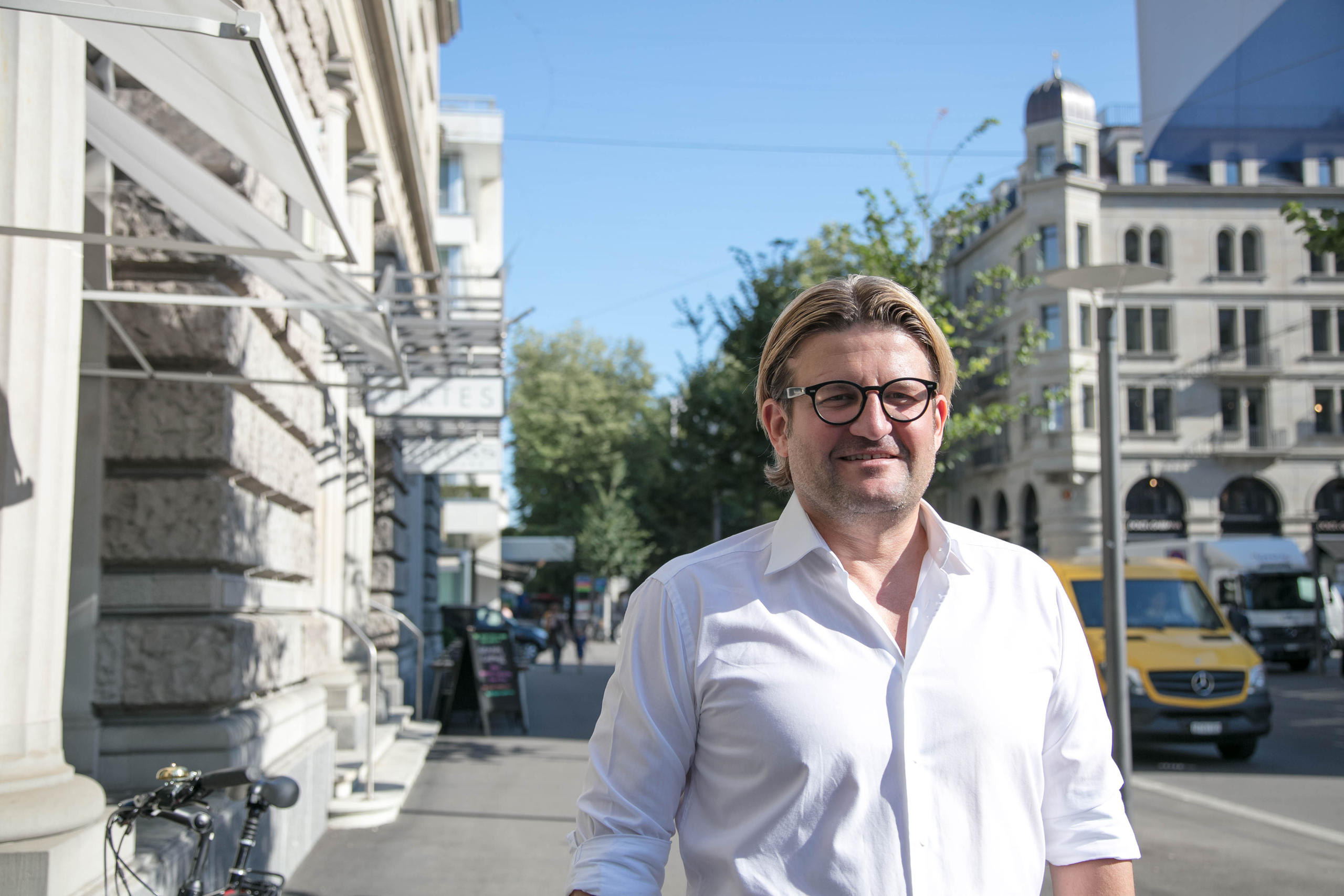‘We need a new way of thinking about how parliament works’

Under emergency powers, the Swiss government has taken the reins in guiding the nation’s response to Covid-19. As parliament prepares to get back to work, digital democracy activist Daniel Graf discusses how the crisis will impact participatory politics in the future.
swissinfo.ch: Both halves of Switzerland’s semi-direct democracy, the people and the parliament, have been sidelined by the virus. How big a problem is this for democracy?
Daniel Graf: People in Switzerland generally trust that the government is doing its best to solve the crisis while taking citizens’ concerns into account. There are public debates about the measures, but there is no sense that something is going seriously wrong. However, we don’t see behind the scenes in Bern, where measures are being fast-tracked and heavily influenced by lobbyists. Normally, citizens would have oversight on decisions like the aviation sector bailout, and even if they couldn’t vote on it, they could demonstrate against it. But even demonstrating on the street is not an option right now.
swissinfo.ch: Could the parliament have been more involved digitally?
D.G.: Before, when we started talking about digitalisation, nobody listened, especially in parliament itself. The thinking was always to protect the status quo, keep things as they were. Now it’s clear that this is a topic that needs to be discussed. It’s unbelievable that a central institution of our society could not perform its core oversight function without physically being in Bern. We need a new way of thinking about how parliament works. Digitalisation will be a priority in the next months.

swissinfo.ch: What would such digitalisation look like?
D.G.: The main point is that it’s not just about video conferences. And it’s not simply copying what happens offline onto an online platform. The beauty of it is that you can develop a digital system according to new goals – getting citizens more involved, for example. Parliament is very old-fashioned in the sense that you have to be there to participate; technology can open this up. More transparency around who is meeting and talking with whom is also possible. But this is what always leads to pushback. Parliament is like an old castle, full of dark corners and rooms, with only the lucky few allowed inside. Many don’t want this to change.
swissinfo.ch: E-voting is still off the table, including for the national votes in September. Will it come back onto the agenda after coronavirus?
D.G.: What we have learned from this crisis is that trust is the highest value in a democracy. In Switzerland, this also applies to votes. People trust that the outcome is accurate – this is why you never see protests in Bern after a result has been announced. The security flaws found in e-voting systems in the past year make it clear that it would have been a bad choice to go ahead with rolling it out on a large scale. I would say the barriers are actually higher now than before, since trust has been shown to be so important.
swissinfo.ch: Will the crisis lead to more people being willing to cede some privacy – in the form of a contact tracing app for example?
D.G.: With a contact tracing app, we’re talking about fundamental privacy. It’s not just accepting to be tracked online; it’s revealing where you are physically, who you are meeting. As for the technology, normally it would take months or years to develop, but we may be using it on a large scale very soon. If the health situation remains serious, people might risk it. But right now the trend seems headed in the opposite direction; as the curve flattens, and we move away from the extreme outcome, people are becoming more critical.
swissinfo.ch: Will we see a rise in digital campaigning by political parties over the next months, since social distancing rules mean they can’t organise large gatherings?
D.G. I think there will only be a small effect on campaigning. Here, the world remains more or less the same before and after coronavirus. But perceptions will shift regarding the electronic collection of signatures for initiatives and referendums. Before the shutdown, e-collecting wasn’t much talked about. Now it’s very much an issue, especially because e-voting – previously the only thing the government was willing to consider – is flagging. The boost for e-collecting could be one of the best outcomes from the pandemic, from a democratic point of view.
swissinfo.ch: Such crises can reveal gaps and underlying problems in societies and democracies. What has jumped out at you during this time?
D.G.: Perceptions of our democratic system are slowly but surely going to change. Before, the idea was that the Swiss system worked really well, that nothing needed to change. We will begin to realise that it’s necessary to adapt it on an ongoing basis, using technology, just as we adapt other areas of our lives. Switzerland tends to think of its democratic system as set in stone; this crisis is showing that some of its tools need to become more flexible.

More
Parliament resumes its role as political watchdog

In compliance with the JTI standards
More: SWI swissinfo.ch certified by the Journalism Trust Initiative





You can find an overview of ongoing debates with our journalists here. Please join us!
If you want to start a conversation about a topic raised in this article or want to report factual errors, email us at english@swissinfo.ch.